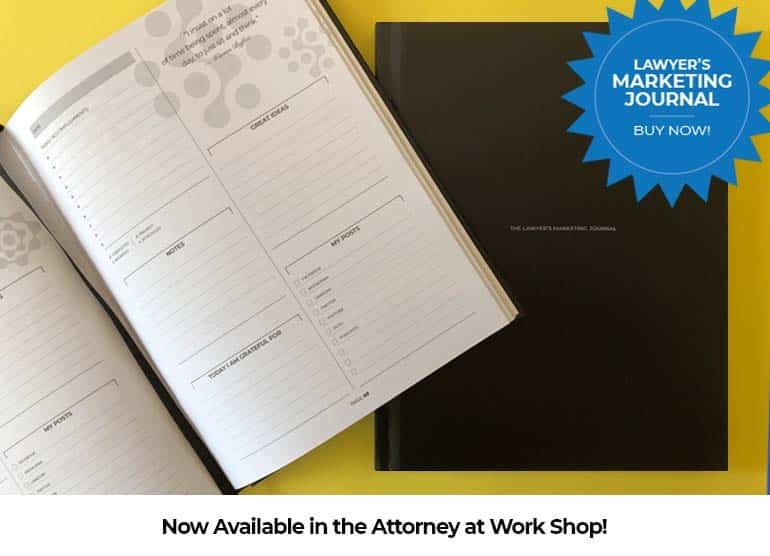Keeping a Done-List list makes it easier to advocate for yourself.
Most of you whose interest is piqued by my title are likely a Type A, someone who loves and lives or wants to better — their to-do list.
I’m sorry to disappoint you, but that’s not what this article is about.
There’s a different kind of list that I have found even more powerful in my career as a lawyer: a “What I’ve Done” list or “Done-List” for short.
Wait. What?!?
Isn’t a ‘Done-List’ Just a Resume or Curriculum Vitae?
No, it’s not.
It’s not brief.
It’s not a summary.
It is literally a working list of the work you’ve done, a data-dump-like tool that you update regularly (at least monthly, although weekly is probably better).
What goes on that list — what you deem worthy of listing — depends on where you practice, what is valued by your employer, or what will you give satisfaction or fulfillment whenever you review it.
Before I share the how, here’s the why (or several whys).
1. Use the Done-List to Demonstrate Your Value
Most employers, in my experience, have some kind of review process, usually on an annual basis. And most of the time, the process includes an area for self-evaluation.
Is it just me, or is it really, really hard to remember what you did yesterday, much less over the last year?
And here’s the kicker: If it’s hard for you to remember what you did, much less did well, over an entire year, don’t you think it’s even harder for a partner or associate general counsel who manages other associates or counsel?
Enter my first impetus for the Done-List.
I knew that if I wanted to stand out as a great associate, I needed to be able to advocate my own value, and the only way to do so was to know what I did so I could give context to the hours I billed.
Was 25% of my 1,900 minimum billable hours all document review, or was it writing dispositive motions and preparing for depositions?
Context also matters when you fall short.
Ready for some tea?
The year I was president of the Dallas Association of Young Lawyers, I missed meeting my billable hours by about 100 hours. But I tracked my bar service hours, pro bono hours, business development hours (I had over 3,000 hours total, just 1,800 billable). And because I advocated for myself about the positive branding I had brought to the firm and myself from using my Done-List, the Associates Committee didn’t ding me. I still got moved up with my peers.
That’s how powerful the Done-List can be.
This is still relevant if you’re a government attorney or in-house, presuming you have an annual review and have to show your value to someone.
I’m in-house now, and, while I don’t have to bill, I choose to track my hours and use a Done-List. When it’s performance review time, I can advocate with confidence the value I’ve brought, the projects I’ve completed. Sometimes it is a numbers game — I’ve resolved X number of disputes or trained X number of people. If numbers don’t give enough context, then I can turn to substance — share that I’ve had several speaking engagements or that I’ve been a good corporate citizen through the pro bono committee.
I can do all that with ease and less time by referring to my Done-List instead of racking my brain at the end of the year.
I also see the Done-List as a tool to mitigate implicit or unconscious bias. Science says we (including the people who grade us) all have bias — whether confirmation or recency or attribution. Consider how helpful you are when you give your grader an intentionally cultivated list for convenience as they consider your performance (presuming your organization’s culture is one where this is acceptable). Maybe that partner just came off a trial with a different associate and hadn’t worked with you but for one case that resolved earlier in the year. Wouldn’t a high-level recap — “This is what I worked on in X case with you, what I wrote, what I did, and remember the client emailed you about how great I am?” — be helpful?
2. Use the Done-List to Cultivate Your Brand
This may not be as helpful to those who are keenly self-aware, but for me, I struggled with knowing what I uniquely brought to the table. As a baby lawyer, I felt like I just didn’t know anything. So how I possibly have a brand?
Having the Done-List to use for reflection helped me become more aware of the experience I was getting, whether I was developing niches in my practice. By the time I was up for shareholder, I understood what my pitch would be.
This is also relevant to networking, branding on social media, pitching for business or a job application or interview.
3. Use the Done-List as a Diagnostic to Build Your Skills
If you’ve read my blog post “It’s Not a Race” on TheMeybe.com, you know I think one of the most important things baby lawyers can do is focus on growing their skills. The Done-List is a great reference sheet for figuring out what experience you have and what experiences you may want to try to get.
Look, I know that as an associate, one of the most frustrating parts of your status is the lack of control. But if you know that you’re ready to take a deposition, it’s easier to make the pitch by saying, “I’ve prepared X number of shareholders for depositions, I’ve observed X many, I’ve defended X many and I’m ready to take one. Can you keep me in mind for the next one?”
4. Use the Done-List for Personal Fulfillment
If you haven’t done the StrengthsFinder assessment, consider it. We can talk about why in another post. One of the talents that I have (and I have found many lawyers have) is “Achiever.” It’s that constant urge to do, to execute, to do more and better, every day. It’s a great talent to have. But when it is overused, it’s exhausting and can lead to burnout and unhappiness. That’s because our to-do lists will never end, and the satisfaction of getting stuff done is never felt.
This is where the Done-List can be beneficial for your mental health. When you can see all that you have done, it may help you celebrate — or at least you can give yourself a break.
Now for the ‘How’ of Making Lists
No rocket science here.
It really does depend on your job. And what you keep track of may change year to year as you get better at knowing what is valuable to your firm or company or yourself.
Let’s say you’re an employment litigator. Maybe you want to keep track of pleadings, agency position statements, non-dispositive and dispositive motions, discovery you’ve drafted — both how many and in what cases. The same goes for depositions — how many you’ve outlined, watched, taken or defended. Consider hearings, bench or jury trials, arbitrations.
Maybe it’s helpful to keep track of the partners or shareholders you work for because you have a goal of working for every single one (because then they know you when it’s time for elevation).
Because I’m in-house, I keep track of the number of disputes I oversee and resolve, the number of trainings I give, the projects I work on and complete — as well as the community work I do, the boards I’m on and any speaking engagements. I also keep track of my happiest clients, in case my AGC asks for referrals.
Finally, once you decide what you want to keep track of, you have to do it regularly. I schedule 30 minutes every week to make sure I do it. If I’m really swamped, I’ll snooze or dismiss until the next week. But the key is being consistent, so it’s not too hard to try to remember over a longer period.
Of course, you could just put your Done-List on your to-do list, if that works better for you.

Lawyer’s Marketing Journal
Teddy Snyder, author of Women Rainmaker’s Best Marketing Tips, has designed a journal that is ideal for tracking marketing and BD activities, ideas and inspiration. Undated pages give you the flexibility to start today.
Image © iStockPhoto.com.

Don’t miss out on our daily practice management tips. Subscribe to Attorney at Work’s free newsletter here >
Photo by Jessica Lewis on Unsplash
Subscribe to Attorney at Work
Get really good ideas every day for your law practice: Subscribe to the Daily Dispatch (it’s free). Follow us on Twitter @attnyatwork.






















